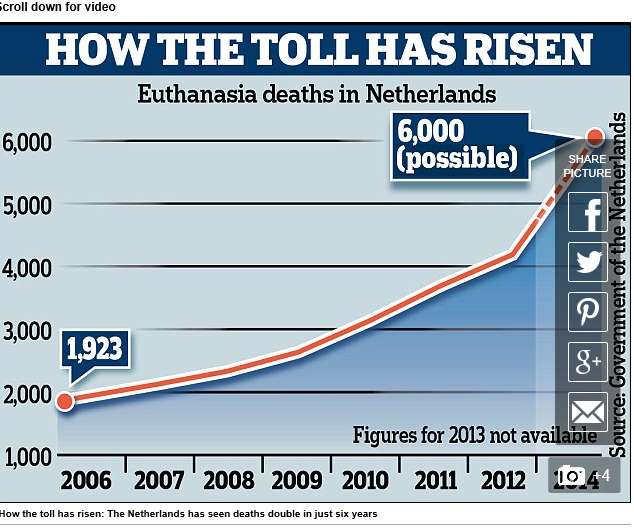Dutch Euthanasia Proof of Recipe For Abuse
 Media Release 3 March 2015
Media Release 3 March 2015
Family First NZ says that the NZ lecture tour by Dr Rob Jonquiere, a leader of the Dutch euthanasia movement, will ignore the mounting evidence from his own country that there’s no safe way to kill people and that assisted suicide will result in coercion and abuse, potentially resulting in a ‘duty to die’.
“International evidence shows that deaths by assisted suicide and euthanasia have been increasing wherever the practices have been legalised, and that the door is opened to a world of abuse. There is a slippery slope, and the Belgium and Dutch experience has proven this,” says Bob McCoskrie, National Director of Family First NZ.
“The euthanasia lobby always claims that it’s about the issue of choice, but the international evidence and experience prove otherwise. Belgium has so-called ‘safeguards’ in their law, but a 2010 study found 32% of euthanasia cases were carried out without request or consent. A 2005 study of deaths by euthanasia in the Netherlands found that almost 500 people are killed annually without their consent, and at least 20% of all cases aren’t reported.”
Professor Theo Boer was a member of the Dutch Regional Euthanasia Commission for nine years, during which he was involved in reviewing 4,000 cases. He admitted to being a strong supporter of euthanasia and argued that there was no slippery slope. However, by 2014 he had a complete change of mind, regretted that he had made a terrible mistake, and even warned the United Kingdom Medical Council against following the Dutch example.
“A Belgium Senator admitted that during the debate on the passing of child euthanasia laws, euthanasia supporters talked about children with anorexia, mental illnesses, and children who were simply tired of life. Belgium is unable to control or prevent the abuse of the existing law. Now they have expanded it to impact children. A recent documentary in Belgium featured a doctor killing a healthy young woman who was struggling with mental illness.”
“To legalise assisted suicide (euthanasia) would place large numbers of vulnerable people at risk – in particular those who are depressed, elderly, sick, disabled, those experiencing chronic illness, limited access to good medical care, and those who feel themselves to be under emotional or financial pressure to request early death. Two elderly Scottish cousins who relied on each other to get by took their lives together in a Swiss clinic in November last year because they feared being put in separate care homes. Patients will come to feel euthanasia would be ‘the right thing to do’, they have ‘had a good innings’, and they do not want to be a ‘burden’,” says Mr McCoskrie.
“Euthanasia will also send a dangerous message to young people about suicide and the value of life.”
The majority of the medical profession and national medical associations around the world have been resolutely against the introduction of voluntary euthanasia or physician-assisted suicide.
Family First is calling for a palliative care regime in New Zealand that is fully funded and world class – and not to remove the protection for vulnerable people including children.
ENDS






